Have you ever wondered about “What Industry is Behavioral Therapy?” It’s more than just a niche within the broader mental health field. Behavioral therapy is a dynamic and growing industry that plays a crucial role in improving the lives of countless individuals. Let’s dive into the fascinating world of behavioral therapy and explore its various facets, applications, and significance.
Behavioral Therapy: More Than Just a Buzzword
First off, let’s clear up a common misconception. Behavioral therapy isn’t an industry itself. It’s actually a type of therapy that falls under a much broader umbrella.
Imagine the world of therapy as a big, bustling city. Different neighborhoods represent different approaches to mental health treatment. In this analogy, behavioral therapy is like a vibrant district with its own unique style and focus.
The Scope of Behavioral Therapy
Behavioral therapy encompasses a wide range of techniques, including cognitive-behavioral therapy (CBT), dialectical behavior therapy (DBT), and exposure therapy. Each of these methods has its own unique approach but shares the common goal of altering problematic behaviors.
- Cognitive-Behavioral Therapy (CBT): This is perhaps the most well-known form of behavioral therapy. CBT focuses on identifying negative thought patterns and beliefs that influence behavior. By challenging and changing these thoughts, individuals can improve their mental health and adopt healthier behaviors.
- Dialectical Behavior Therapy (DBT): Originally developed to treat borderline personality disorder, DBT combines CBT principles with mindfulness practices. It’s particularly effective for individuals struggling with intense emotional responses and self-destructive behaviors.
- Exposure Therapy: Often used to treat anxiety disorders and phobias, exposure therapy involves gradually exposing individuals to feared situations or objects. This helps desensitize them and reduce their anxiety over time.

Applications of Behavioral Therapy
The applications of behavioral therapy are vast and varied. Here are some of the most common areas where behavioral therapy is used:
- Mental Health Disorders: Behavioral therapy is highly effective in treating a wide range of mental health disorders, including depression, anxiety, PTSD, OCD, and more. By addressing the behaviors that contribute to these conditions, therapists can help individuals lead more fulfilling lives.
- Addiction Treatment: Behavioral therapy is a cornerstone of addiction treatment. Techniques like CBT help individuals understand the triggers and thought patterns that lead to substance abuse, enabling them to develop healthier coping strategies.
- Behavioral Issues in Children: Behavioral therapy is often used to address behavioral issues in children, such as ADHD, oppositional defiant disorder, and autism spectrum disorders. Techniques like parent training and social skills training are commonly employed.
- Chronic Pain Management: Behavioral therapy can also play a role in managing chronic pain. Techniques like biofeedback and relaxation training help individuals cope with pain and reduce their reliance on medication.
The Role of Behavioral Therapists
Behavioral therapists are the professionals who administer these therapeutic techniques. They work in various settings, including private practices, hospitals, schools, and community mental health centers. The role of a behavioral therapist involves the following:
- Assessment: Conducting assessments to understand the individual’s behavioral patterns and identify the issues that need addressing.
- Treatment Planning: Developing a tailored treatment plan that includes specific interventions and techniques to address the individual’s needs.
- Therapeutic Interventions: Implementing various behavioral therapy techniques to help individuals modify their behaviors.
- Monitoring and Adjustment: Continuously monitor progress and make necessary adjustments to the treatment plan.
If you’re looking for Arlington Behavior Therapy experts, just give Elysian Psychological Services a call now! We provide trauma therapy, grief therapy, and many more services for you. Reach out now!
The Industry Landscape
The behavioral therapy industry is part of the broader mental health services sector, which has seen significant growth in recent years. This growth is driven by increased awareness of mental health issues and a greater acceptance of seeking help. According to the World Health Organization, mental health disorders affect millions of people worldwide, highlighting the need for effective therapeutic interventions.
In the United States, the behavioral therapy industry includes a wide range of providers, from solo practitioners to large mental health organizations. The industry is regulated by various state and federal agencies to ensure the quality and efficacy of services provided.
Innovations and Trends
The field of behavioral therapy is constantly evolving, with new research and innovations shaping the way therapists approach treatment. Here are some of the current trends and advancements in the industry:
- Teletherapy: The COVID-19 pandemic accelerated the adoption of teletherapy, allowing therapists to provide services remotely. This has increased access to behavioral therapy for individuals in rural or underserved areas.
- Technology Integration: Apps and digital tools are being developed to support behavioral therapy. These tools can help individuals track their progress, practice therapeutic techniques, and stay connected with their therapists.
- Mindfulness and Meditation: Integrating mindfulness and meditation practices into behavioral therapy is becoming more common. These practices can help individuals manage stress, increase self-awareness, and improve emotional regulation.
- Personalized Therapy: Advances in technology and research are paving the way for more personalized approaches to behavioral therapy. By tailoring interventions to the individual’s specific needs, therapists can achieve better outcomes.
The Importance of Behavioral Therapy
Behavioral therapy is vital for several reasons. Firstly, it provides individuals with practical tools to manage their mental health. Instead of merely talking about their problems, they learn specific techniques to change their behavior and improve their well-being.
Secondly, behavioral therapy has a strong evidence base. Numerous studies have demonstrated its effectiveness in treating a variety of mental health disorders. This makes it a trusted and reliable option for individuals seeking help.
Lastly, behavioral therapy can have a ripple effect on other areas of a person’s life. By improving their mental health, individuals can experience better relationships, increased productivity, and a higher overall quality of life.
Want to know more about “What is Behavioral Couples Therapy?” Visit our blog page now to know more!

Getting Started with Behavioral Therapy
If you’re considering behavioral therapy, here are a few steps to get started:
- Research: Look into the different types of behavioral therapy to understand which one might be the best fit for your needs.
- Find a Therapist: Search for licensed behavioral therapists in your area. You can use online directories, ask for recommendations from your primary care physician, or contact your insurance provider for a list of covered therapists.
- Initial Consultation: Schedule an initial consultation to discuss your concerns and goals. This will help you determine if the therapist is a good fit for you.
- Commit to the Process: Behavioral therapy requires commitment and active participation. Be prepared to engage fully in the process and apply the techniques you learn in your daily life.
Conclusion
The industry of behavioral therapy is a vital and growing field that plays a crucial role in the mental health landscape. With its wide range of applications, innovative approaches, and evidence-based techniques, behavioral therapy continues to make a significant impact on the lives of individuals around the world. Whether you’re dealing with a specific mental health issue, coping with chronic pain, or looking to improve your overall well-being, behavioral therapy offers valuable tools and support to help you achieve your goals. So, if you’re ready to make a positive change in your life, consider exploring the world of behavioral therapy – it just might be the key to unlocking a healthier, happier you. Ready to explore the transformative world of behavioral therapy? Elysian Psychological Services offers expert guidance to help you understand and navigate this dynamic field. Our skilled therapists are here to provide personalized support tailored to your needs. Don’t wait to take charge of your mental well-being—connect with us today and see how our services can make a difference. Your journey to a healthier mindset starts with just one step—let’s make it together!


